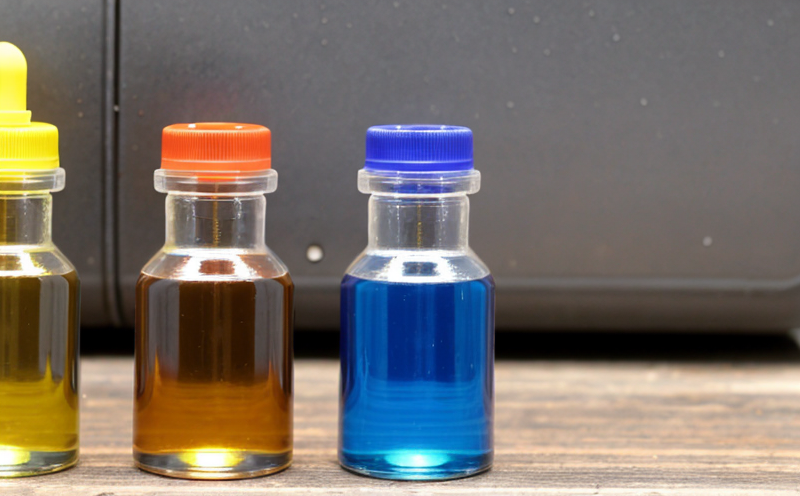Cooling Tower Water pH Testing
Water quality is critical in maintaining the efficiency and longevity of cooling towers. The pH level in a cooling tower’s water plays a pivotal role in ensuring that the system operates optimally without causing corrosion, scale formation, or microbiological growth.
The optimal pH range for a cooling tower should typically fall between 6.8 and 7.2. This narrow band ensures that the water is neither too acidic nor too alkaline, which helps prevent metal corrosion and scaling while also inhibiting the proliferation of harmful microorganisms like军团菌 (Legionella pneumophila).
Our laboratory specializes in providing precise and reliable pH testing services for cooling tower water. Using state-of-the-art analytical equipment, we can accurately measure the pH levels within a margin of ±0.1 units. This precision is crucial as even small deviations from the optimal range can have significant impacts on the system's performance.
The process begins with thorough sampling of the cooling tower water, ensuring that the sample represents the entire system. Once collected, the sample undergoes rigorous preparation to eliminate any potential interference factors before analysis. Our laboratory adheres strictly to international standards such as ISO 12230 and ASTM D1203 for pH measurement.
After processing, we employ potentiometric titration techniques which are highly accurate and repeatable methods for determining the exact pH value of the sample. This method involves using a calibrated pH meter with a glass electrode to measure the potential difference between the solution and a reference electrode. The results provide an immediate reading that reflects the true pH level.
The importance of maintaining proper pH levels cannot be overstated. Inadequate control can lead to accelerated corrosion, increased maintenance costs, and even potential health hazards from biofilm formation. Our testing not only identifies current issues but also provides insights into trends over time, enabling proactive management strategies.
Our services are designed to meet the stringent requirements of various industries including manufacturing, power generation, and HVAC operations. By providing accurate pH data, we empower our clients to make informed decisions regarding their cooling tower maintenance schedules and chemical dosing practices.
Scope and Methodology
The scope of our Cooling Tower Water pH Testing service includes a comprehensive evaluation of the water chemistry within your cooling tower. This encompasses not only the pH measurement but also other key parameters such as total dissolved solids (TDS), hardness, alkalinity, and chloride levels.
To conduct these tests, we employ advanced analytical instrumentation that meets or exceeds industry standards for reliability and accuracy. Our method involves taking multiple samples from different parts of the cooling tower to ensure a representative sample is analyzed. This approach helps in identifying any localized issues within the system.
The methodology includes:
- Sampling: Collecting water samples at various points in the cooling tower.
- Sample Preparation: Ensuring that the sample is free from external contaminants and representative of the entire system.
- Analytical Procedure: Utilizing potentiometric titration techniques with calibrated pH meters to measure the pH accurately.
- Data Analysis: Interpreting the results against set standards and providing actionable insights.
Why Choose This Test
Selecting our Cooling Tower Water pH Testing service offers several advantages that are crucial for maintaining efficient and safe operation of your cooling tower. Firstly, accurate pH monitoring is essential for preventing metal corrosion which can significantly shorten the lifespan of critical components.
Poor pH control can lead to the formation of calcium carbonate scale, a major contributor to blockages in heat exchangers and other system components. By regularly testing and adjusting the pH levels, we help you avoid costly repairs and replacements.
Furthermore, our tests are vital for controlling microbial growth within the cooling tower. Legionella pneumophila, among others, thrive under certain pH conditions, posing a risk to human health if not properly managed. Our comprehensive testing ensures that these risks are minimized, thereby enhancing both operational efficiency and safety.
From an environmental perspective, maintaining optimal pH levels in your cooling tower contributes positively towards sustainability goals. By reducing the need for excessive chemical treatments and minimizing waste discharge, we assist you in meeting regulatory compliance while also promoting eco-friendly practices.
The results from our tests provide valuable data that can be used to optimize water treatment processes, reduce energy consumption, and extend equipment life. These insights are particularly beneficial for large-scale industrial operations where even minor improvements can translate into substantial cost savings over time.
Environmental and Sustainability Contributions
The testing of cooling tower water pH contributes significantly to environmental protection and sustainability efforts. By ensuring that the pH levels are maintained within acceptable limits, we help reduce the likelihood of chemical imbalances leading to excessive biofilm formation or microbial proliferation.
Incorporating our services into your maintenance protocols aids in minimizing the discharge of harmful pollutants into local water bodies through cooling tower blowdown. This practice aligns with broader environmental initiatives aimed at reducing industrial impacts on aquatic ecosystems.
Additionally, optimizing pH levels can lead to reduced chemical usage within the system. This not only lowers operational costs but also decreases the amount of chemicals entering the environment. The efficient operation of your cooling tower translates into lower energy consumption and greenhouse gas emissions, further supporting sustainability goals.
Our laboratory’s commitment to precision and reliability in pH testing ensures that you receive accurate results every time, enabling informed decision-making regarding water treatment strategies. By leveraging these insights, you can implement targeted interventions aimed at achieving long-term sustainability objectives without compromising on performance or safety standards.





